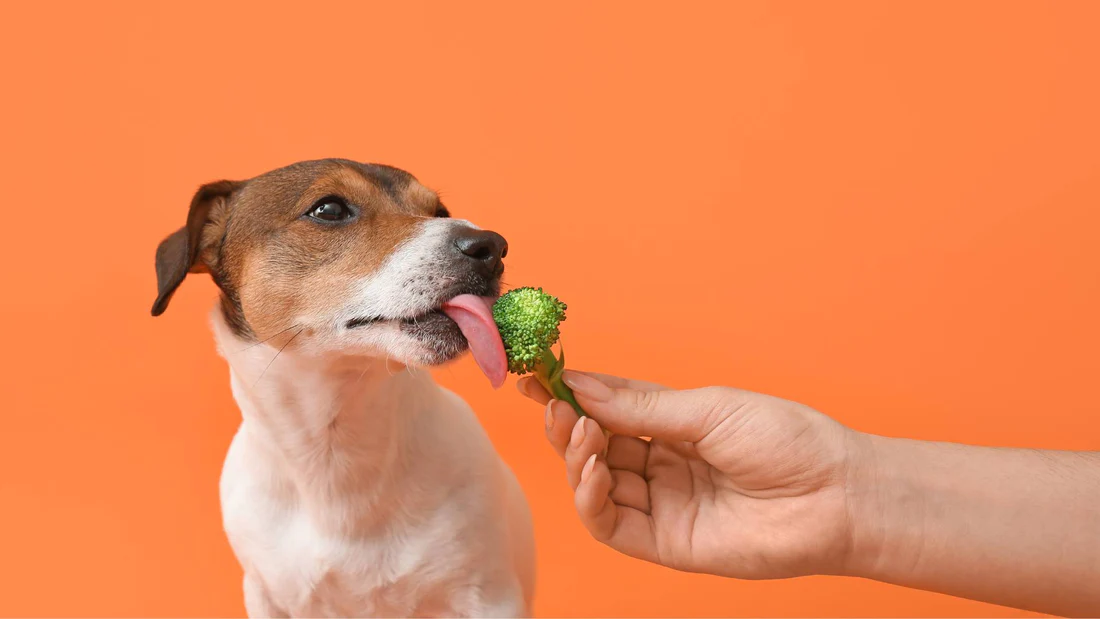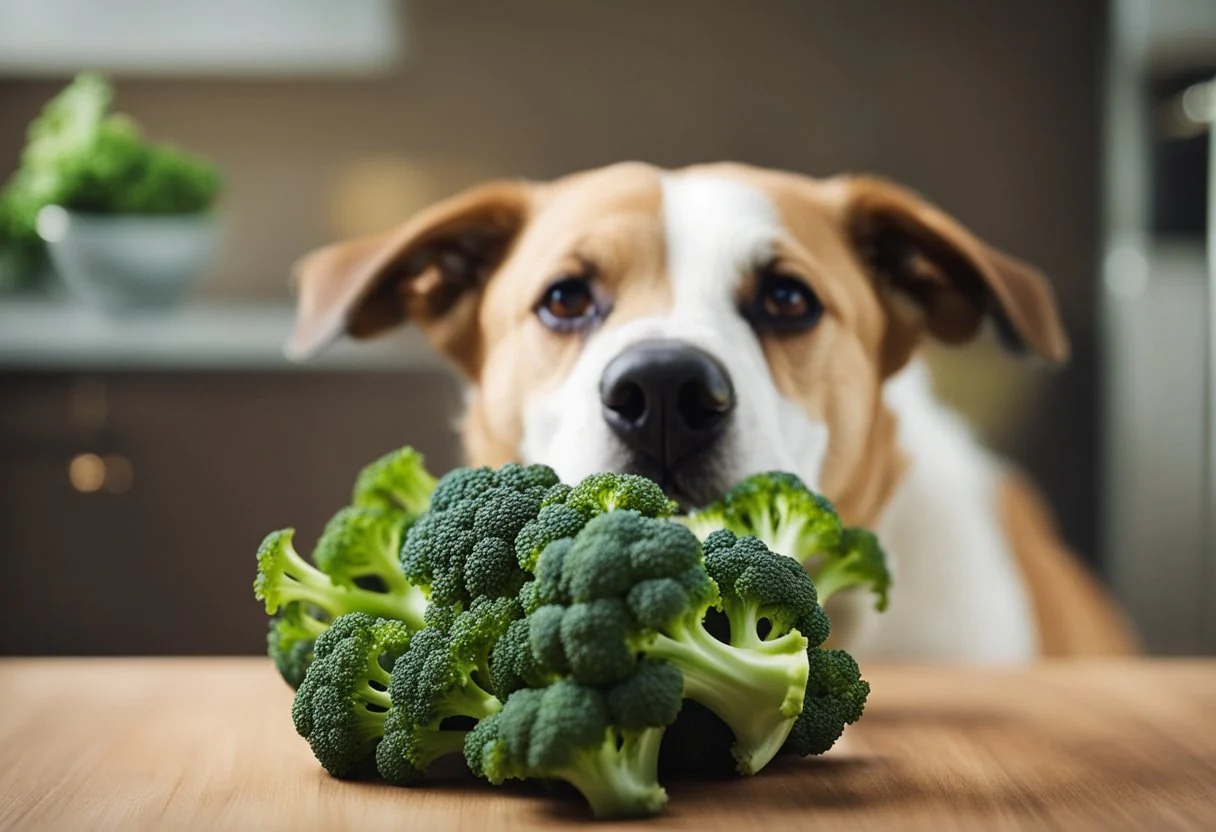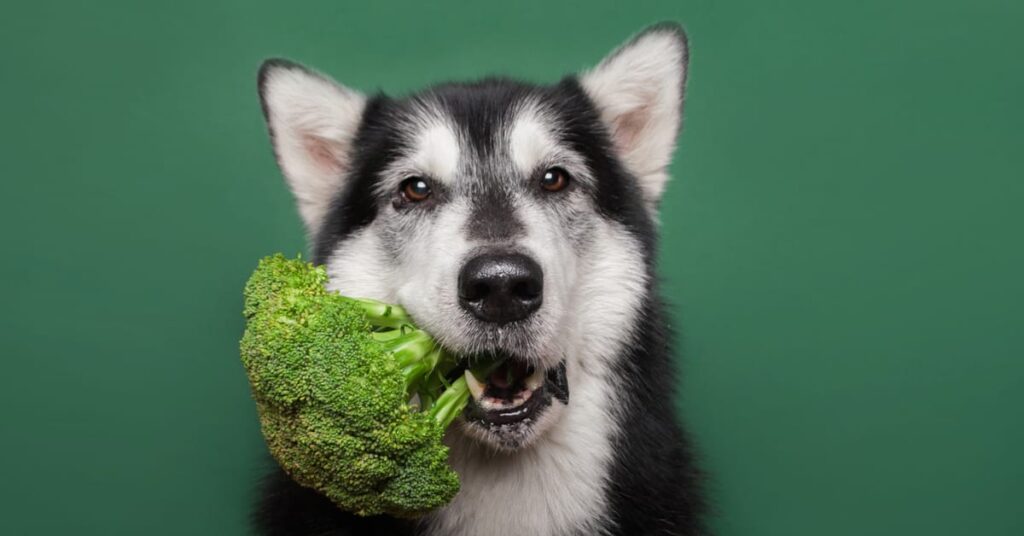When it comes to feeding your dog, you want to make sure you’re making the best choices for their health and well-being. One food that often comes up in discussions is broccoli. As a delicious and nutritious vegetable that’s a staple in many human diets, you may be wondering if it’s a good choice for your dog too. Well, the short answer is yes, dogs can eat broccoli. However, as with any new food, there are a few things to keep in mind. So let’s find out whether broccoli is good for dogs or not.

Is Broccoli Good for Dogs?
The answer is yes, dogs can eat broccoli. However, there are a few things to keep in mind before adding this cruciferous vegetable to their diet.
1. Moderation is Key
While broccoli is generally safe for dogs, it should always be fed in moderation. This means that you should offer it as an occasional treat or as a small addition to their regular meals. Just like with any new food, it’s important to introduce it gradually and observe how your dog reacts to it.
2. Nutritional Benefits
Broccoli contains several essential vitamins and minerals that are beneficial to your dog’s health. It is a good source of vitamins A, C, and K, all of which contribute to their overall well-being. Additionally, broccoli provides dietary fiber and potassium, which can support digestive health and bone density, respectively.
3. Antioxidant Power
Broccoli is rich in antioxidants, such as sulforaphane. These compounds play a vital role in boosting your dog’s immune system and fighting off infections. By reducing cytokines, antioxidants can also have anti-inflammatory effects, promoting better overall health and well-being.
4. Potential Risks
While broccoli can provide numerous health benefits, it’s important to be aware of some potential risks. Broccoli contains isothiocyanates, which can cause gastrointestinal upset in some dogs. Additionally, the fibrous nature of broccoli can pose a choking hazard, especially if not properly cooked or cut into smaller pieces.
How to Feed Broccoli to Your Dog?
Here are some guidelines to follow when introducing broccoli to your dog:

- Choose organic broccoli: If possible, opt for organic broccoli to reduce the risk of exposure to pesticides or herbicides. Organic vegetables are generally safer for your dog’s overall health.
- Prepare it properly: Whether you choose to serve broccoli cooked or raw, it’s essential to prepare it in a dog-friendly way. For cooked broccoli, ensure that no seasonings or oils are added. When feeding raw broccoli, consider pureeing it for better digestibility.
- Wash before serving: Regardless of how you plan to serve broccoli, always remember to wash it thoroughly to remove any dirt or potential contaminants.
- Cut it into small pieces: Large pieces of broccoli can be challenging for dogs to chew and swallow, increasing the risk of choking. To prevent this, cut the broccoli into small, bite-sized pieces before offering it to your dog.
- Introduce gradually: When introducing broccoli to your dog’s diet for the first time, start with small quantities and observe their reaction. Some dogs may be sensitive to new foods, and abrupt dietary changes can lead to gastrointestinal upset.
Can Dogs Be Allergic to Broccoli?
While broccoli is generally safe for dogs to consume, it’s important to note that some dogs may be allergic to this vegetable. Just like humans, dogs can have food allergies, and broccoli is no exception. If your dog experiences any adverse reactions after consuming broccoli, it may be an indication of an allergy.

1. Common Symptoms
If you suspect your dog may be allergic to broccoli, it’s essential to be aware of the common symptoms. While the symptoms can vary from dog to dog, some of the most common signs of a broccoli allergy in dogs include:
- Diarrhea
- Vomiting
- Itchy skin or rashes
- Difficulty breathing
2. What to Do if Your Dog Shows Allergic Reactions
If your dog exhibits any of the above symptoms after consuming broccoli, it’s crucial to seek veterinary attention immediately. Allergic reactions can be serious, and prompt medical intervention is necessary for your dog’s well-being.
How Much Broccoli Can Dogs Eat?
Here’s what you need to know about how much broccoli your dog can eat:
- Portion control: Dogs have different nutritional requirements than humans. While broccoli is packed with nutrients, it should only make up a small portion of your dog’s diet. Too much broccoli can cause digestive issues like gas and stomach upset.
- Size matters: The amount of broccoli you can offer your dog depends on their size. As a general guideline, small dogs should have no more than a few small pieces of broccoli, while larger dogs can have a bit more. Remember, broccoli should only be a small addition to their overall balanced diet.
- Introduce gradually: If you’re introducing broccoli into your dog’s diet for the first time, start with small amounts and observe how they react. Some dogs may have allergies or sensitivities to certain foods, including broccoli. If your dog experiences any adverse reactions, such as vomiting or diarrhea, consult your veterinarian.
- Trim the florets: Remove any tough or fibrous stems from the broccoli and cut the florets into smaller, bite-sized pieces. This will make it easier for your dog to chew and digest.
- Avoid seasonings: Stick to plain, cooked broccoli without any seasonings, oils, or spices. These additives can be harmful to dogs and may cause digestive upset.
Frequently Asked Questions
Is broccoli a good addition to a dog’s diet?
Yes, broccoli can be a healthy addition to a dog’s diet. It is rich in vitamins, minerals, and fiber, which can benefit their overall health. However, it should be given in moderation and alongside their regular food.
How should I introduce broccoli to my dog’s diet?
It is important to introduce broccoli gradually to your dog’s diet. Start by offering small amounts and see how they tolerate it. Watch for any signs of digestive upset or adverse reactions. If all goes well, you can increase the amount slowly over time.
Can broccoli upset a dog’s stomach?
Yes, consuming too much broccoli can potentially upset a dog’s stomach. This is mainly due to the presence of isothiocyanates in broccoli. It is recommended to give broccoli in small quantities and monitor for any signs of gastrointestinal distress.

Hey there, I’m Janet Brooks, a dog-loving student from California. I’m all about helping pups in need, especially those without homes. Me and my awesome friends work together to give shelter and love to stray dogs. Oh, and I also write blogs about dogs to share helpful info.